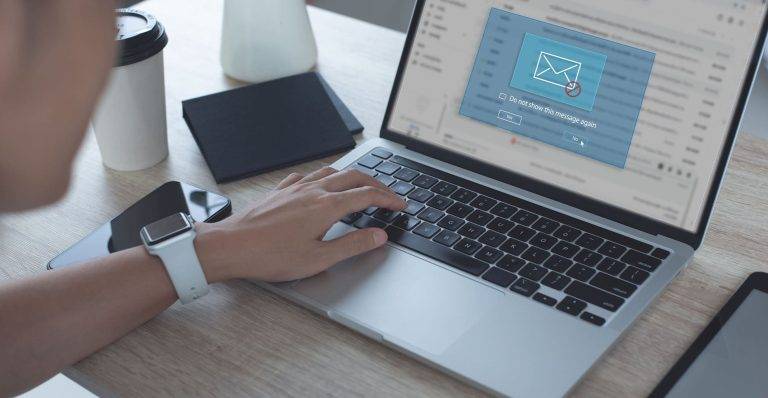Email has become an indispensable tool in modern workplaces, serving as a vital communication medium and a repository for sensitive information. However, it’s also a prime target for cybercriminals seeking to exploit vulnerabilities. As threats continue to evolve, employees must adopt robust email security practices to safeguard themselves and their organizations. Below are some actionable email security tips to ensure you stay protected and proactive in the fight against cybercrime.
**1. Craft Strong, Unique Passwords**
A strong password is your first line of defense against unauthorized access. Avoid using predictable combinations like birthdays, names, or dictionary words. Instead, opt for complex passwords that include a mix of uppercase and lowercase letters, numbers, and symbols. Each account should have its own unique password. To manage multiple passwords effortlessly, consider using a trusted password manager. These tools generate strong passwords and securely store them for easy access.
**2. Leverage Multi-Factor Authentication (MFA)**
Adding an extra layer of security through multi-factor authentication significantly reduces the risk of breaches. MFA requires users to verify their identity through an additional step, such as entering a one-time code sent to their phone, using a fingerprint scan, or accessing an authentication app. Even if a hacker obtains your password, they won’t gain access without this second verification step.
**3. Recognize and Avoid Phishing Scams**
Phishing remains one of the most common email-based threats. Cybercriminals craft convincing emails designed to trick recipients into divulging sensitive information or clicking on malicious links. These emails often impersonate legitimate organizations or individuals and may convey a sense of urgency. Learn to identify red flags, such as poor grammar, unfamiliar sender addresses, suspicious links, or unsolicited requests for personal data. When in doubt, verify the sender’s authenticity through alternative means before taking action.
**4. Maintain Separate Personal and Work Email Accounts**
Using distinct email accounts for personal and professional purposes enhances security and organization. This separation reduces the risk of sensitive work-related information being exposed in case of a personal account breach. Additionally, it minimizes the likelihood of accidental data crossover, ensuring your professional and personal activities remain independent.
**5. Exercise Caution with Email Attachments**
Attachments are a common method used by cybercriminals to distribute malware. Avoid opening attachments from unknown or unverified sources. Even if the sender appears legitimate, it’s worth double-checking by contacting them directly. To further protect yourself, scan all attachments with reliable antivirus software before opening them. These measures can prevent harmful files from compromising your device or network.
**6. Stay Updated Through Cybersecurity Training**
Keeping up with the latest cyber threats and defense techniques can be challenging. Regular cybersecurity awareness training is an excellent way to stay informed. Such training equips employees with knowledge about emerging threats, phishing techniques, and preventive measures. It also reinforces a culture of vigilance, empowering teams to identify and mitigate risks effectively.
**7. Use Advanced Email Security Tools**
While personal diligence is vital, deploying advanced email security tools can strengthen your defenses. Tools like anti-phishing software, spam filters, and automated threat detection systems can identify and block malicious activities before they reach your inbox. Technologies like DomainKeys Identified Mail (DKIM) and Sender Policy Framework (SPF) add an extra layer of verification to ensure incoming emails are from trusted sources.
For organizations seeking a comprehensive approach to email security, partnering with an IT service provider can be a game-changer. These experts can implement tailored solutions, monitor network activities, and provide ongoing support to protect your business from sophisticated cyber threats.
**8. Monitor Email Accounts for Unusual Activity**
Being alert to unusual email activity can help detect a potential breach early. If you notice unauthorized logins, unexpected password reset requests, or unfamiliar sent emails, act immediately. Change your password, enable MFA if it’s not already active, and report the incident to your IT team.
**9. Regularly Update Email Applications and Systems**
Outdated software can have vulnerabilities that cybercriminals exploit. Always ensure your email client, operating system, and antivirus software are up-to-date. Updates often include patches for known security flaws, making it harder for attackers to gain access.
**10. Avoid Clicking Unknown Links**
Links embedded in emails can redirect you to malicious websites or trigger automatic downloads of harmful software. Before clicking a link, hover your cursor over it to preview the URL. If it looks suspicious or differs from the sender’s official website, avoid it. When in doubt, manually type the website address into your browser instead of clicking the link.
**Conclusion**
Email is an indispensable tool, but its vulnerabilities make it a prime target for cyberattacks. By implementing strong security practices, such as using unique passwords, enabling multi-factor authentication, recognizing phishing attempts, and staying informed, employees can play a pivotal role in protecting their organizations. Pair these practices with advanced tools and professional IT support to create a robust defense against ever-evolving cyber threats.
Your proactive efforts today could prevent costly breaches tomorrow. Take the steps necessary to secure your email and contribute to a safer digital environment for everyone.


